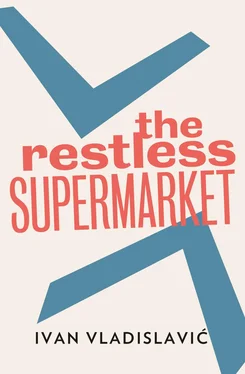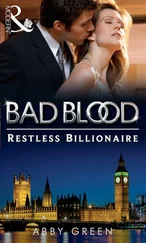*
The Members of the Society soldiered on, with the silence of the City Fathers ringing in their ears. They were all past exhaustion. But whereas some were ready to submit, others were determined to go on to the end, no matter the sacrifice. Factions arose. The meetings at the Café Europa, which had been called to discuss strategy, but which always ended in stalemate, grew more and more fractious.Voices were raised and threats levelled. Then one evening, pencils were pointed in anger for the first time in the Society’s history, and the meeting broke up in disorder.
In the small hours of that bitter morning, Fluxman stood sleepless at the window of his penthouse, looking down on Alibia. Tutivillus Heights was the city’s only skyscraper — in Alibia, the top of a six-storey block will brush the brow of heaven — and it made him feel immensely alert and far-seeing, and utterly detached from the earth. His eyes wandered from rooftop to rooftop, from street to street. He felt it. The building was swaying, a motion so gentle it would have escaped the notice of all but the most perceptive observer. It was not soothing at all; it filled him with foreboding. Then he recalled who he was and what he stood for. He erased his frowning misgivings from the glass before him with an eraser shaped like an egg, but they came back again and again.
*
Toyk’s report was an eye-opener. There was movement everywhere, not just in the outlying industrial zones, but in the heart of Alibia. The signs pointed to massive geological instability. Nothing would stay put. Structures were shifting closer together or further apart, skylines were rising and falling, streets were narrowing, views were opening up, cracks were appearing.
Most puzzling, he reported, was the fact that some of these changes would later reverse themselves, just as mysteriously, as if a countervailing force were at work. One of his own juniors, a certain Bron, was on hand when two houses in Capitol Hill, the most sought-after of the hillside suburbs, having moved slowly but surely closer together for several weeks, suddenly sprang back to their original positions. The deviation, a matter of inches, had been perceptible only with measuring instruments, but the correction was so abrupt, it was visible even to an untrained eye.
A stitch in time saves nine. But it is the lot of ordinary people that they are seldom aware of the loose threads in the seams of their own lives. And a missing button, as they say in Alibia, leads to a lost coat. Months went by, and the citizens remained blind to the changes taking place around them. Then, at last, the observant ones began to notice the more violent reversals. Some of them, like the occupants of the houses in Capitol Hill, whose crockery had been rattled until it broke, put it down to earth tremors; others were inclined to speculate. Before Toyk had time to complete his investigation, there were letters to the Star suggesting that such upsets were symptomatic of chronic instability in the body politic, claims the City Fathers always denied.
Behind the scenes, Toyk’s report caused a furore. Even as they were pronouncing the whole region as safe as houses, the Fathers were issuing urgent instructions to Public Works to begin with repairs immediately. Soon the streets were filled with teams of men in orange overalls performing highly visible and ineffectual shoring-up operations — securing cables to walls, hammering posts into pavements, building retaining walls and dykes, digging trenches, sinking boreholes, grounding flying buttresses, pouring road metal into fissures.
These busy efforts had no effect. On any day of the week, in any close or wynd, one might see someone trip over a step where no step had been before, or pause to gaze anxiously into the black space that had opened up between a newly built wall and a newly grouted pavement. All it took was for the street signs to make one quarter of a turn, anticlockwise, and the city would be clogged with people who had lost their way.
*
Night after night, a shudder of restless fidgeting passed through the city. Everything that opened and shut was doing so, secretively and obsessively. Windows and doors, posts and rails, tongues and grooves, stocks and mitres were testing the bounds of their unions, engaging and disengaging, clasping and releasing, over and over, as if they meant to part company soon. Those who were awake to this experimental dissent shivered, and imagined that someone had walked over their graves.
*
The Proofreaders, persevering in wounded silence, were not spared the trials that befell ordinary Alibians. Figg was inserting some new arrivals into the Register of Births and Deaths one morning — it was supposed to be his day off, but he was slaving away as usual — when the threads that secured the bone-yellow buttons of his cuffs unravelled with a fizz, as if he had held a flame to them, and fell away. He gazed in consternation at the squiggles of black thread on his sleeves and the flakes of ash on the backs of his hands.
He turned his eye again to the page before him. ‘Knowing you enriched our lives’ Good Lord! There was something wrong with the paper. It seemed strangely pale, it was floating, curling up at the edges and drifting free of the desk. ‘Safe in God’s care’ And then he saw what the problem was: there was not a single full stop left anywhere. He paged backwards and forwards. Nothing. The leaves levitated, the edges feathered into deckle. The whole stack fluttered and began to reshuffle itself, as Figg hastily rolled up his sleeves. Then he pinned the concertinaed sheaf to the desk with one hand and took up his blue pencil with the other. He worked with feverish concentration until night fell, buttoning down line after line … caret, caret, caret … until he could hardly see straight.
In the end, he looked at his fist, lying like a leaden paperweight on the stack, and at the crumbled end of his pencil. He licked the dent in his forefinger and flipped through the pages. Twenty or thirty of them, newly buttoned, lay neatly on the desk … the rest mounted obstinately upwards. He checked the clock: he had not risen for more than seven hours. To save a minute, he had gone so far — God help him! — as to pass water in the waste-paper basket. But it was no good. Even as he calculated the extent of his commitment, the corners of the page under his fist, the page he had just finished correcting, twitched and curled into dog-ears. Exhausted, he fell back in his chair and watched the papers rising slowly into the air, gathering under the ceiling like cumulus, blown this way and that in the breeze from the fan, scudding against the mouldy cornices, sinking down in the four corners of the room. Enough was enough. He reached for the telephone.
‘This is the residence of Aubrey Fluxman,’ the machine began. ‘Should you wish to leave a message …’
*
Fluxman had also been working that morning, banging away at the typewriter, when the lenses of his spectacles began to vibrate. He knew at once that something catastrophic was afoot. He listened to the first breathless accounts of the unfolding drama on the radio while he tweezered a screw from among the hammers. Then he slipped into a serviceable tracksuit, with an elasticized waistband, and went out into the streets.
The fruits of that convulsive instant lay scattered everywhere. The riverside coffee bars and eateries stood empty. In the shadowy interior of the Hottentot, which he had frequented in his youth, a leather banquette coughed. He crept in to take samples, hooking red and brown buttons from their resting places with the end of his pencil. He ventured into the furniture factory as well, despite the warnings of the security guards, to see with his own eyes the dowelled dead in the basement, sprawled among scatter cushions as fat as puffer fish, looking for all the world as if they had merely lain down to rest. In the Gravy Boat, it was business as usual. Just hours before, the regular morning sprinkling of tea-sippers and French-knitters had rushed away in a panic when the armchairs inflated beneath them. But the proprietor was treating it all with the levity appropriate to a minor mishap. Half-price for standing room only, snacks on the house. Finding a pillar to lean against, Fluxman ate a Croque Monsieur and drank a beer, which he normally denied himself in the daylight hours. Later, he simply wandered through the unnaturally rounded afternoon, mourning every vanished quilt and pucker in the urban upholstery.
Читать дальше












